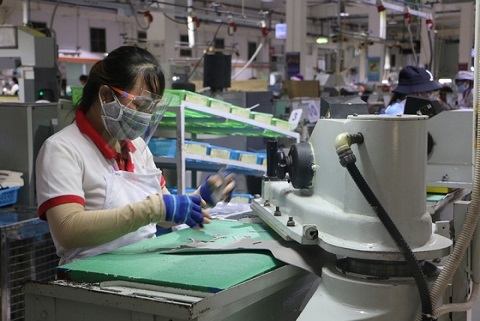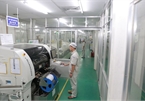 |
|
|
The information comes from the Ministry of Planning and Investment’s report on the position, role and results of restructuring SOEs in the period 2016-2020 presented to the Prime Minister at a conference on March 24.
By the end of 2020, Vietnam had nearly 500 enterprises with 100% capital owned by the State and nearly 200 enterprises where the State held the controlling shares.
Wholly-owned SOEs mainly focus on the fields of agriculture, forestry, irrigation works (40%); national defense and security (17%); urban public utilities, lighting, water supply and drainage (14%); and lottery (13%).
The group of SOEs with more than 50% capital owned by the State operate mainly in the areas of agriculture and forestry, seaport infrastructure, transport and real estate, tourism, and construction materials.
Excluding defense, and security and agro-forestry enterprises, there are 94 large-scale SOEs, including nine economic groups; 67 State corporations; and 18 companies operating under the model of parent-subsidiary group.
Making up just over 10% of the total number of SOEs, the large-scale SOEs hold 90% of total assets, 88% of revenue and 86% of pre-tax profit of all SOEs.
According to the Ministry of Planning and Investment, although SOEs with 100% of State capital account for only about 0.08% of operating enterprises, they hold a large resource of the economy with about 7% of total assets and 10% of the total equity of all enterprises in the market.
In addition, this group of businesses accounts for about 25.78% of total production and business capital and 23.4% of the value of fixed assets and long-term financial investment of operating enterprises.
The average assets of SOEs amount to VND4,100 billion, 10 times higher than that of foreign-invested enterprises, and 109 times that of private enterprises.
In terms of business performance, in 2020, SOEs with 100% state capital recorded more than VND 1.55 quadrillion in revenue, an increase of 18% compared to 2016. Profit before tax of this group reached VND 122,347 billion, up 5%.
Several parent corporations had revenue in 2020 much higher than in 2016 such as the Vietnam Oil and Gas Group (PVN) with a revenue increase of 2.08 times; the Housing and Urban Development and Investment Corporation (HUD) with revenue increasing 2.68 times; and Dong Bac Corporation with an increase of 2.35 times.
The contribution to the State budget of this group also takes the lead with about 28% of the total annual tax and budget revenue. In 2020, SOEs with 100% state capital paid a total of VND 241,728 billion in taxes and other expenses to the state budget.
Under expectations
However, the Ministry of Planning and Investment said that the production and business activities of the group of state-owned enterprises are still not commensurate with the resources they own.
Their business results are achieved mainly based on available resources (fields, capital, markets...), while the quality and operational efficiency are lower than the growth of capital.
Some large-scale SOEs have low production and business results, are indebted, and suffer large losses. In 2020, 11 of 73 economic groups and corporations reported accumulated losses of more than VND11,464 billion. For the State-owned commercial banking system, the main limitation is that the capital size and capital adequacy ratio are still low compared to commercial banks in the region and the world.
The competitiveness, especially the international competition of the group of state-owned enterprises, is still low.
In a key area such as trade, the State budget balance revenue from import-export activities accounts for 13.81% of the total budget revenue, of which foreign-invested enterprises make up 9.36 percentage points, while SOEs and domestic private enterprises account for only about 2.2 percentage points.
If using exports as a criterion to assess competitiveness, the ability of SOEs to compete and reach out to international markets is still limited.
Mai Lan

Vietnam needs drastic SOE restructuring: experts
Deputy Prime Minister Le Minh Khai has signed a decision to deepen the restructuring of state-owned enterprises (SOEs) in 2021-25.